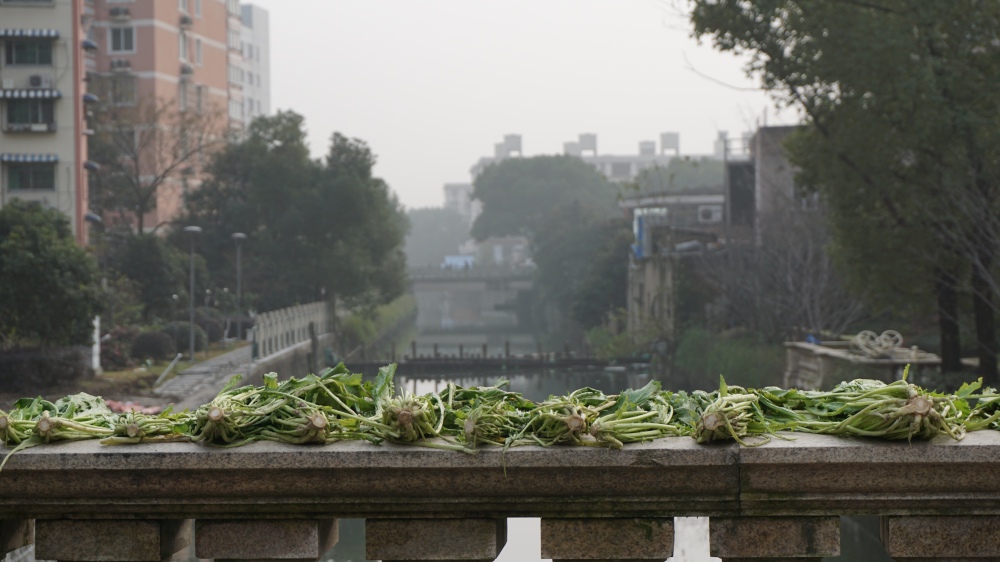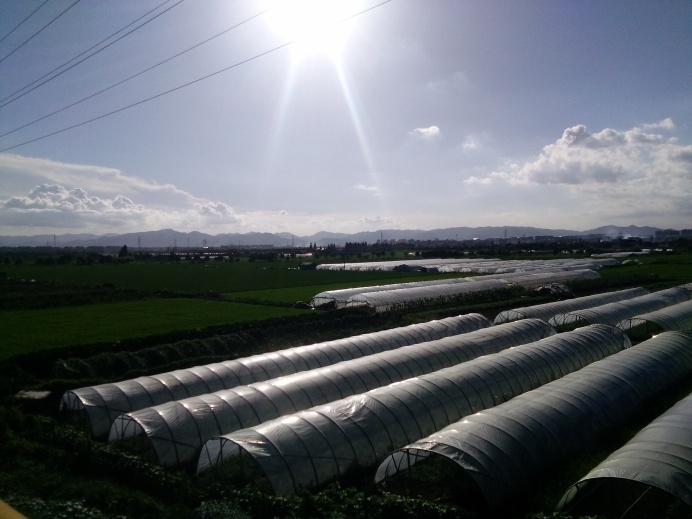I used to think markets were a bourgeois gimmick, destined to adults in their forties with proper wages. Plus, dragging your caddie there chills your toes in the winter.
Only a few years ago did I start going, listening to the advice of my experienced neighbor who enjoys a good culinary life without spending too much. He directed me to the “Marché d’Aligre”, which contaminated me immediately.
Stocking up on kilos of veggies for the whole week became my weekend treat. A typical date with my sister would consist in rushing to at closing-time, collecting as many freebies and slightly damaged veggies as we could, then cooking the whole lot in the afternoon before it spoils. Good times.
Ningbo proved to be a paradise of markets. The city is riddled with big ones and small outlets here and there – oddly, no places sell vegetables and fruit at the same time.
The whole is always a festival of smells, sights and yelling (the “ten kuai for a pound!” type). Most markets thrive in buildings and are open every day.
The folks who don’t have a spot inside cram in front of the building, so it’s a highway of vegetables exposed on sheets (probably picked the same morning), heaps of nuts in wheelbarrows, birds in baskets and soon-to-be slaughtered fish and shrimp in polystyrene cases. Occasionally there’ll be room for toads and some mysterious vegetable. You have the Xinjiang bakers next to the shoe menders hanging out with their gear at the ready (fixed my boot in three minutes!). The party gets even funkier inside.

There is no refrigeration system, so all the meat and fish stands rely on ice and live fish are kept in water tanks. These are often killed on the spot. Occasionally veggie spoils, animal bits and shellfish will spill on the floor but it’s regularly swept up. I abstract from that part and just look for my usual lady, among the thirty or so people I can choose from, a couple of them smoking, a couple bouncing on their feet to keep warm.
Although I can lead a basic conversation with her, it’ an embarrassment every time she comes up with new words I’m clueless about. Moreover, my vocabulary never significantly expands as I’m always asked the same questions by other people: “Where are you from? Where do you work? How much money do you make? Do you have a boyfriend? Why do you use your own bags? Do you like Ningbo?”. They are so genuine I’ve given up being annoyed, no point convincing yourself that either you’re too stuck up or they’re being too nosy. I laughed along with a man joking about the size of my nose once “It’s so big! How can you kiss?!”.
I wish I knew a bit more about their life, though I’m afraid asking them similar questions would bring me incomprehensible answers, enhanced by a thick Ningbo accent making four sound like ten for example. As of now I’m basically aware that most of the time the husbands grow the food, they all get up around 5, finish at 12, work every single day and are 本地人 (locals), producing a lot of food in urban farms.

Notable perks in the market include cotton bags a man will sow for me on the spot, dried fruit, nuts, flours, cereals, beans, tofu, sodium bicarbonate, sugar and honey I can all get in bulk. Haven’t found the Shaoxing wine and the vinegar yet but they’re on my list. The bags always get a look of amusement as I take them all out (there must be a dozen of all sorts), but my favourite stands are now used to it and will be happy to hear out my plasticophobic rant. Most of them are curious and very conscious of the environmental problems around them so they’ll be eager to discuss and exchange points of view. The plastic chat will usually wrap my morning, before I charge up the half ton of groceries I have on the bicycle basket and hoist the rest on my back, usually in a pretty bright mood. Going to the market is the closest I can get to feeling at home. If you’re lucky enough to have one near your place, do drop by.